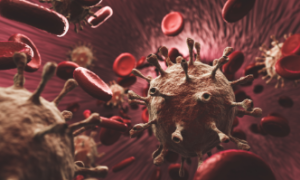
Suspect You Might Have Colorectal Cancer? Here Are the Four Early Warning Signs You Shouldn’t Ignore!
Colorectal cancer is one of the most common cancers in Hong Kong, with incidence rates remaining high for many years. Because early symptoms are often subtle or unnoticeable, many people are diagnosed at a later stage. Recognizing early warning signs and seeking timely medical evaluation can significantly improve recovery outcomes and overall well-being.









